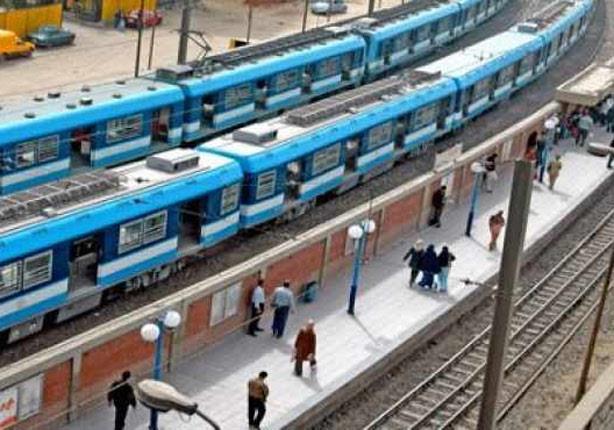It is Sunday morning, the first day of the work week in Cairo. You decide that in the new, post-revolution Egypt, you will do your part to help the environment by taking public transportation.
The subway in Cairo is undoubtedly the best way to move around: fast, trains generally arrive at short intervals, cheap (one ticket costs LE 1, while there are nominal discounts for re-usable tickets for ten journeys or more) and safe.
The system consists of two operational lines, run by the National Authority for Tunnels (NAT). Line 1 (Helwan–Al-Marg) covers 33 stations, while Line 2 (Shobra al-Kheima–Mounib) covers 20. Two more lines are currently under construction and will link Imbaba to the Cairo Airport and the Haram district to New Cairo, uniting Greater Cairo from West to East.
According to the NAT, the Cairo Metro boasts a capacity of 1.8 million passengers per day. On all Cairo Metro trains, the middle two cars (the 4th and 5th) of each train are reserved for women, with the 5th car open to both genders after 9pm. A campaign was recently launched to instruct passengers how enter and exit cars by different doors and thus reduce crowding. The fruits of this campaign, however, have yet to be seen.
So, here you are, with your noble intentions to both reduce Cairo pollution and save money. You walk to the Metro station in Heliopolis, thinking that you will be in Garden City within 30 minutes, tops. How naive.
You patiently await the arrival of the Metro, which is oddly late. After 20 minutes, the first train arrives. But before you can even think about approaching the car, you see a face squashed up against a window, mouth open, desperate for air. A gaggle of women entering the train makes it impossible for anyone inside–seeking liberation from the packed train–to exit. As the lucky few make it off the train, a glance is thrown your way as if to say, “At your own risk, dear.”
“I’ll wait,” you think to yourself. "If all 1.8 million people who, according to the statistics, use the Metro daily already got on the last train, the next one should be empty!” Egypt's recent revolution seems to have made you considerably more idealistic.
One hour–and four trains–later, your rose-colored world darkens. Masses and masses of bodies collide and merge in and out of the train as if hoping to defy the laws of physics by physically occupying the same space at the same time.
Finally, a tiny space presents itself and you pop in, unable to breathe–but trivialities such as respiration lose their importance in situations like this. Amid the intermingled smells of countless perfumes and odors–your mouth full of hair and your jaw battered by several elbows–you give your body over to the ebb and flow of the human tide. Don't even try to move–the force of other passengers' bodies will carry you where you want to go: minimum effort, maximum return.
Oddly, the children are all asleep, nestled in winter blankets in 30 degrees Celsius. But, as people here know, anything is possible in Egypt. If you need a glue stick, head bands, a trendy t-shirt or pencils, don’t worry–you are in the right place. Tilt your head upwards and you will see a fistful of products and hear the seller’s shrill voice, as he tries to make his way towards you. You might not be able to breathe, but you have a new glue stick–so don’t be so picky.
After 11 stations, it is finally your turn, as you re-appropriate your body after being ejected onto the platform.
Only four more days of this–Good luck!




